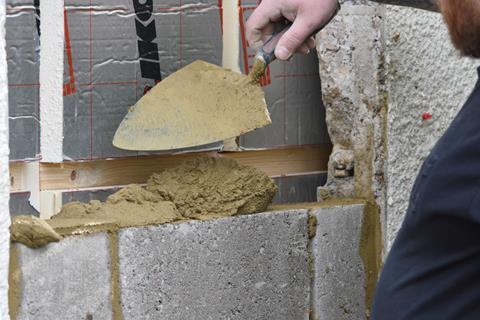Planning delays are a big barrier to growth, say 93% of SME builders

SME builders in England are being crippled by the slow planning process and more than nine out of ten are unhappy with the government’s approach to housing policy, according to a survey.
Ninety three per cent of SME developers said securing and processing planning permission was a major issue in starting construction work, the survey carried out by Close Brothers Property Finance, the Home Builders Federation (HBF) and Travis Perkins found.
Overall a similar amount - 92% - of the 218 respondents said they were unhappy with the government’s current approach to housing.
Just over three quarters (76%) of the survey respondents felt local authority staff shortages were the main cause of delays in the planning process. Housing Today last summer highlighted the plight of SME builders.
More than two-thirds of the respondents, which included 74% trading for over 10 years and 20% trading for between 2 and 10 years, had been affected by ‘nutrient neutrality’ rules.
The survey also found the availability of land is a problem for 52% of SME builders and 99% and 88% believe rising material and energy costs, respectively, are hampering their ability to build, Official figures at the start of the month showed building materials costs had gone up 10.4% in January compared to the same month the year before.
Four in 10 SME builders also predicted the government’s building safety levy, with which the government aims to raise £3bn from the sector to carry out safety repairs on ‘orphan’ tower blocks, will slow down their housing delivery.
This is the third ‘state of play’ report on SME builders, as the number of companies plummet. In 1988 12,215 SME companies were building 39% of new homes in England and Wales, Home Builders Federation figures have shown. That percentage had dropped to 10% by 2020 and there are now only about 2,500 SME builders operating today.
Stewart Baseley, executive chairman of the HBF said: “The planning process is grinding to a halt and regulatory costs are rising, whilst the nutrient issue has put the brakes on sites across a quarter of the country. SME house builders are a major employer and have a key role to play if we are to meet our housing needs, but their numbers have plummeted in recent years. If we are to avoid losing even more businesses amidst a drop in supply, government must take action now to create an environment within which SME builders can operate.”
Rowland Thomas, managing director at Close Brothers Property Finance, said: “The role of SMEs in the housebuilding industry has consistently been underestimated and often ignored when it comes to policy and planning. The reality, however, is that SMEs play a vitally important role in the creation of a healthy housing market and the consistent erosion of confidence in the government’s approach to planning, especially for SMEs and first-time buyers, gives great cause for concern.”











No comments yet